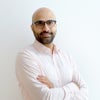Driving The Future: How Partnerships Are Furthering The Connected Car Industry In The MENA Region Globally, the connected car industry is growing at a fast pace. Valued at US$63.03 billion in 2019, it is now projected to reach $225.16 billion by 2027
Opinions expressed by Entrepreneur contributors are their own.
You're reading Entrepreneur Middle East, an international franchise of Entrepreneur Media.

The coming together of resources, expertise, and intelligence through strategic partnerships and synergistic connections of brands is a powerful asset to take on the mammoth task of furthering any industry- and this is what is happening in the MENA region's connected car arena right now.
Globally, the connected car industry is growing at a fast pace. Valued at US$63.03 billion in 2019, it is now projected to reach $225.16 billion by 2027. Within the MENA region, according to a report by Goldstein, penetration is estimated to exceed 19% by 2024.
There are a number of reasons for this. Starting with the obvious, we are on a compounding technological growth spurt with innovation in the driver's seat, which is, in turn, driven largely by our need for constant and instant connectivity, as well as our reliance on technology to go about our day-to-day lives.
And considering the fast-paced, always-on, and on-the-go culture that has its roots firmly set in our modern world, it comes as no surprise that car manufacturers and services are increasingly looking to vehicles as "the next mobile device." It is for this reason that there is a growing interest in enhancing the "connected" and integrated capabilities of cars to enable them to connect with various devices.
Despite a promising, upward trajectory, the connected car industry is still in its nascent stages particularly in the MENA region, with a lot of research, testing, and innovation being poured into creating features to ultimately enhance the customer experience, and more importantly, through convenience.
At my enterprise, CAFU, our recent collaborations with global automobile giant Ford and local disruptor Ekar to create a new era of predictive, automated refueling have once again proven that it is the power of such partnerships, that are based on a synergistic connection of shared business goals, which will continue to drive the future of the connected car industry.
Indeed, partnerships between automakers and big tech giants have set a powerful precedent in showing us the value in connecting resources and expertise through shared agendas. In the case of our partnership with Ford, what's unique about it is that for the first time in the region, we are digitizing the car ownership experience, with our first step of making the refueling experience available with the infotainment system of Ford and Lincoln vehicles.
Related: The Future Of Cars: A Few Thoughts On Innovation In The Automotive Sector

What this means for customers, is that they can now connect their phone with their vehicle to order and schedule their refueling service, rather than relying on a separate (mobile) device to do so. And more importantly, we have pushed this region into the predictive refueling space.
What has made such an exciting new offer possible is that Ford -a global disruptor, and the first to introduce the Model T, making the automobile accessible to every human and not just the rich- and CAFU -the local disruptor that was the first to introduce on-demand refueling to the region- are both companies that not only thrive on technology and innovation, but are always looking to the future, to find the "what's next" to drive industries and communities forward.
Consumers have grown expectant of certain pace of the new and the improved when it comes to the next feature, gadget, or gizmo to make their tap-and-receive world go round. And it is undeniable the scale and pace with which we can develop and grow the connected car industry and offering if we are to come together and share the tremendous experience and tricks of the trade that we possess.
Not only would this help expedite this process, it would also ensure that we are not compromising on the quality and readiness of the offer. And more importantly, the quality control through repeated tests, checks and trials by both the experts, viewing it through their expert lens is what allows for such mitigation of glitch and error.
At this point, the famous African proverb comes to mind: "If you want to go fast, go alone. If you want to go far, go together." In the case of partnerships to drive the future of connected cars, we stand to go far- and fast.
Related: The Year That Was: Rashid Al Ghurair, Founder And CEO, CAFU










